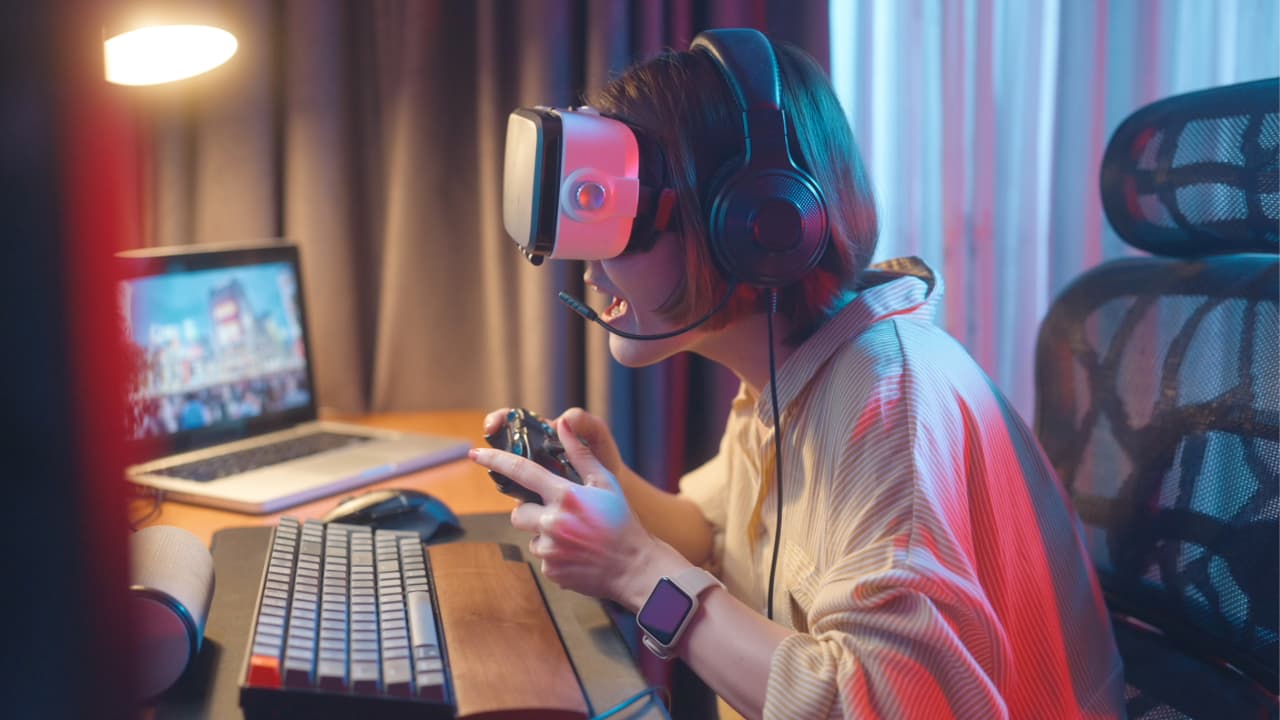A study from Michigan State University finds that AR/VR sports games can boost mental health and reduce loneliness. By enabling real-time social engagement, these games help players feel more connected, improving overall psychological well-being.
Physical activities like sports have long been recognised as beneficial for mental health, helping people manage anxiety and stress. Now, a new study from Michigan State University has found that virtual sports games that augmented reality (AR) and virtual reality (VR) also improve well-being and reduce feelings of loneliness. Two assistant professors, Sanghoon Kim and Sangchul Park, conducted research whether playing AR/VR sports games could improve psychological health and encourage social connections. Their findings were published in the International Journal of Human-Computer Interaction.
What Did the Study Find?
The study found that playing AR/VR sports games, such as table tennis, bowling, or billiards, can make players feel more connected to others and enable real-time communication during gameplay. This sense of connection is important because it can improve mental wellbeing. It involves not only how people feel internally but also how their experiences in virtual games connect with their real-life relationships and social ties.
How Was the Study Conducted?
The research team surveyed 345 people who played AR/VR sports games. Participants completed questionnaires about their level of engagement in the games, mental health, feelings of loneliness, and other factors. The researchers focused on how enjoyment of the games and social experiences like loneliness interact to influence overall well-being.
Key Results
The results highlighted several important points:
• Players who were more engaged in AR/VR sports games reported higher levels psychological wellbeing.
• The games create a strong sense of being with others, even when players are not physically together.
• These social connections not only make the games enjoyable but also play a key role in improving mental health.
• Kim noted that when people feel present with others through avatars or virtual interaction, the experience goes beyond just being a game.
• Unlike traditional online interactions that mainly use text or voice chat, AR/VR games allow players to connect in ways that feel more natural and human.
• Players who spent more time gaming and those who often felt lonely in their daily lives gained more psychological benefits from playing AR/VR sports games.
The researchers even recommended playing these games as part of therapy.
Why This Matters
Experts caution that AR/VR sports games are not a complete solution for loneliness or mental health problems. Not everyone benefits equally from social gaming. Some players still feel uncomfortable socializing in virtual environments. The researchers also recommend that professionals and policymakers carefully consider how AR/VR sports games should be used to support mental health.
Loneliness and mental health challenges have become a serious global issue. As technology continues to improve, AR/VR sports games could become a valuable tool in addressing these challenges, offering new ways for people to connect and stay mentally healthy.
